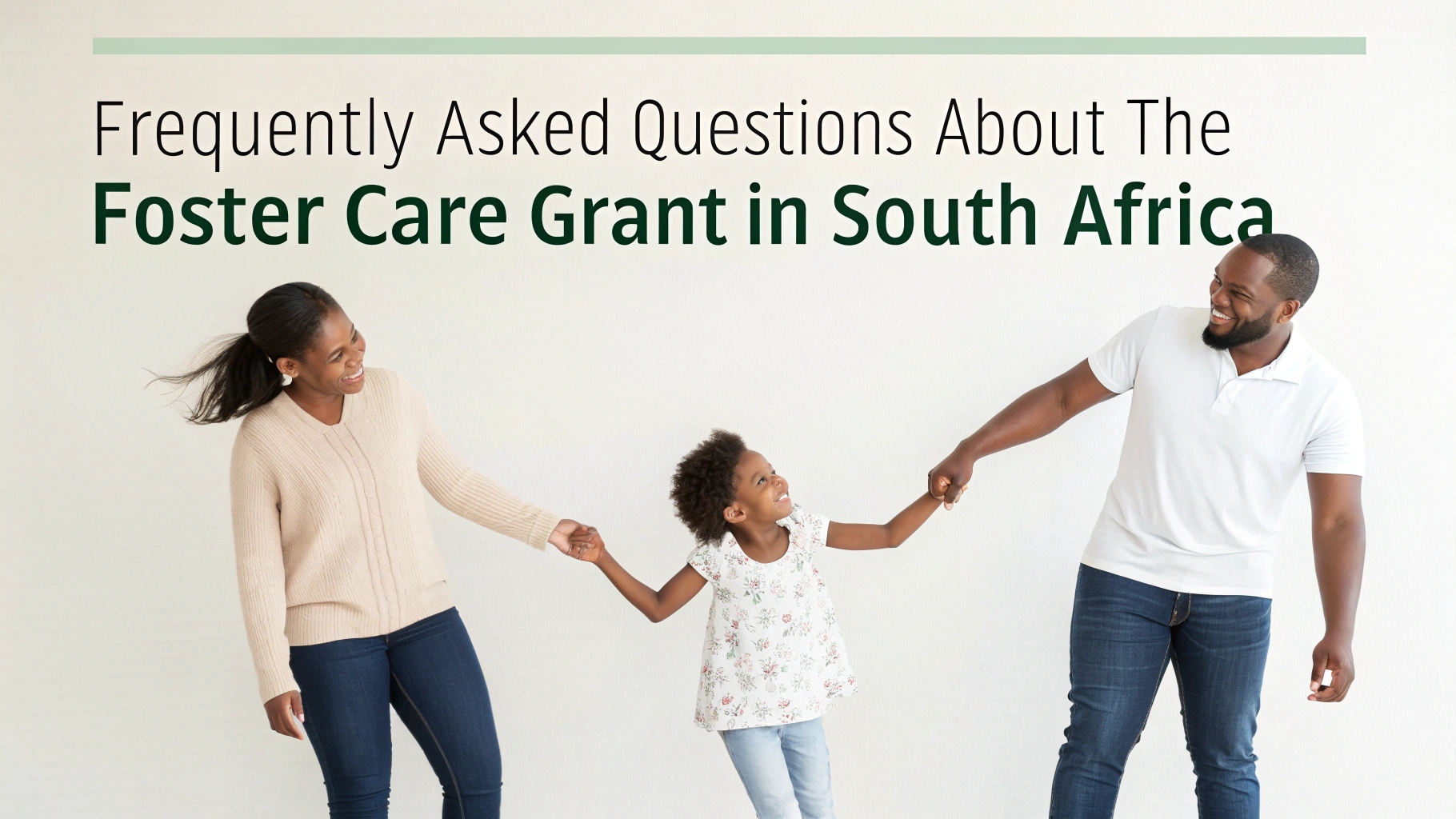The Foster Care Grant is an important financial support system provided by the South African government to assist foster parents in meeting the needs of children placed in their care. Below, we answer some of the most frequently asked questions about the Foster Care Grant in South Africa.
Frequently Asked Questions About the Foster Care Grant in South Africa
What is the Foster Care Grant?
The Foster Care Grant is a monthly financial assistance provided by the South African Social Security Agency (SASSA) to foster parents who are legally responsible for a child in need of care. The grant helps cover the costs associated with raising the child, such as food, clothing, education, and healthcare.
Who qualifies for the Foster Care Grant?
To qualify for the Foster Care Grant, the following criteria must be met:
- The child must be legally placed in foster care by a court order under the Children’s Act (Act 38 of 2005).
- The foster parent must be a South African citizen, permanent resident, or recognized refugee.
- The child must be under the age of 18.
- The child must remain in the foster parent’s care as stipulated by the court order.
How do I apply for the Foster Care Grant?
To apply for the Foster Care Grant, follow these steps:
Visit your nearest SASSA office
Complete the SASSA application form
Submit the required documents
- A certified copy of your ID document or valid permit (for refugees).
- A certified copy of the child’s birth certificate.
- The court order placing the child in your foster care.
- A completed SASSA application form.
- Proof of your marital status (if applicable).
- Attend an interview
- Wait for feedback from SASSA
How will I receive the Foster Care Grant?
Once approved, you will receive the grant through one of the following methods:
Direct deposit
SASSA card
Cash payment
How long does the Foster Care Grant last?
The Foster Care Grant is valid for as long as the child remains in foster care under a legal court order. The grant must be reviewed every two years, and foster parents need to submit updated documentation to confirm continued eligibility.
Can I receive the Foster Care Grant for multiple children?
Yes, if you are fostering more than one child, you can receive a separate Foster Care Grant for each child. However, each child must have a legal foster care order.
What happens if the child turns 18?
The grant will automatically stop when the child turns 18, unless:
The child is still in school or undergoing training, in which case the court may extend the foster care order until the child turns 21.
A new court order is issued to extend the foster care placement.
What should I do if my application is declined?
If your Foster Care Grant application is declined, you have the right to appeal the decision. Submit an appeal within3 months of receiving the rejection notice. You can contact SASSA for guidance on how to appeal.
Can the Foster Care Grant be stopped or suspended?
The Foster Care Grant can be stopped or suspended under these circumstances:
- The child is no longer in foster care.
- The child has been adopted.
- The foster parent fails to renew the foster care court order.
- The child passes away.
- The foster parent misuses the grant or fails to meet the child’s needs.
Can I apply for the Foster Care Grant if I am not a South African citizen?
Yes, recognized refugees and permanent residents can apply for the Foster Care Grant, provided they meet the necessary requirements and have a legal foster care court order.
What if I move to a different province after receiving the grant?
If you move to a different province, you must inform SASSA and update your details. The grant will continue as long as the child remains in your legal foster care and your court order is still valid.
Can I receive both the Child Support Grant and the Foster Care Grant for the same child?
The Foster Care Grant is provided instead of the Child Support Grant. If you are receiving the Foster Care Grant, you cannot apply for the Child Support Grant for the same child.
Is the Foster Care Grant taxable?
The Foster Care Grant is a social assistance grant and is not subject to taxation. It does not need to be declared on tax returns.
Can I apply for a foster care grant for a relative?
Yes, if a child relative is legally placed in your foster care by a court order, you can apply for the Foster Care Grant. However, informal arrangements (e.g., caring for a relative without a court order) do not qualify for the grant.
Conclusion
The Foster Care Grant is an essential financial support system that helps foster parents provide for children in need. Understanding the application process, eligibility requirements, and responsibilities is crucial for ensuring that children receive the necessary care and protection. If you have further questions, you can visit your nearest SASSA office or contact the Department of Social Development for guidance.
